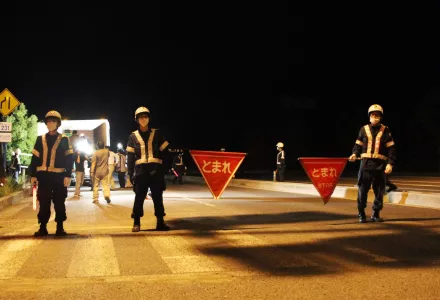Fukushima and the Law
A Project on Managing the Atom seminar with Julius Weitzdörfer, Stanton Nuclear Security Junior Faculty Fellow with the International Security Program and Project on Managing the Atom.
A Project on Managing the Atom seminar with Julius Weitzdörfer, Stanton Nuclear Security Junior Faculty Fellow with the International Security Program and Project on Managing the Atom.

Although in September 2019 the Tokyo District Court cleared three former TEPCO executives of criminal charges, the legal fallout from the Fukushima Dai’ichi nuclear accident is colossal. With over 85 billion dollars of damages awarded to 2.9 million claimants (as of 18 October), it marks the largest liability case in global legal history. In addition to a tsunami of suits brought by evacuees and affected companies in civil courts, hundreds of administrative injunctions were sought against other reactors across Japan. Transnationally, arbitrators from Tokyo to New York hear cases ranging from multi-million dollar trade disputes over cancelled uranium contracts to a pending 5.1 billion dollar investment arbitration over profits lost due to the German nuclear phaseout.
In contrast to the fundamental regulatory reforms and ambitious procedural solutions adopted in Japan, legislative changes have been limited elsewhere and the adoption of new, binding and enforceable international nuclear law remains strikingly absent. Across jurisdictions and areas of nuclear law, and based on the collaboration of 19 international experts, this talk examines what legal lessons from Fukushima have been learned, providing an overview of Julius Weitzdörfer’s forthcoming book Fukushima and the Law (Cambridge University Press, co-edited with Kristian Lauta).